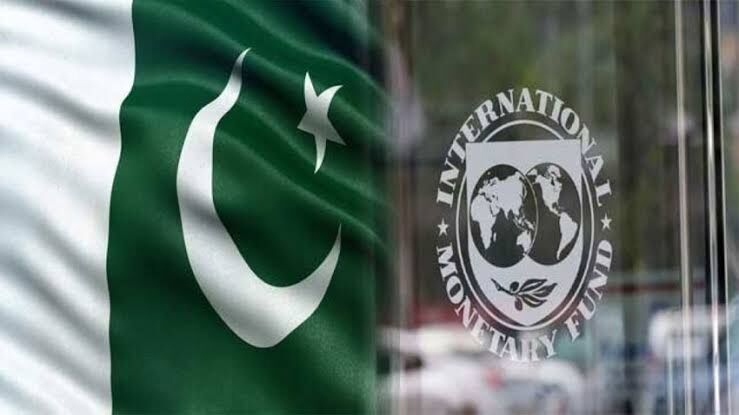The recent IMF loan to Pakistan, though framed as economic support, raises deeper questions about global diplomacy and power dynamics. Like is it for real? Just a financial help or is it a diplomacy in disguise?
With the United States being the IMF’s largest contributor, the loan reflects strategic interests and not just mere financial aid. Given Pakistan’s history with terrorism, its complex ties with the US and China, and its sensitive geographic position, the move seems less about recovery and more about maintaining influence in a such a terrific volatile region. For India, this development sparks concern over regional stability and the true motives behind international support to a nation often accused of fostering extremism, or to be more precised, of fostering terror only.
Diplomatic and Strategic Games of The United States and China
When the IMF sanctioned a loan to Pakistan recently, it was seen by many as a move to help the country stabilize its failing economy due to somewhat war like situation. But for those who look deeper into the walls of geo-politics, it seems to be more than just a financial assistance. It appears to be part of a larger diplomatic and strategic game, involving powerful nations like the United States and China and one that could indirectly affect India too. Of’course it’ll affect India in a way which people can hardly dream now, so the government must certainly be on alert.
The IMF is not just a bank. It’s a powerful global body where wealthy nations like the United States, Japan, China, Germany, the UK, and France hold most of the decision-making power. The US is the biggest contributor, so its voice carries the most weight. When a country like Pakistan is granted a loan, especially under critical financial conditions, the green signal often reflects more than just economics, what is it then?
“It’s often diplomacy in disguise.”
The US-Pakistan relationship is a very complex one. On one hand, America has provided Pakistan with billions of dollars in aid and loans over the decades, has supported its military, and cooperated during the Cold War and later in the War on Terror after 9/11. While on the other hand, if we try to mirror deeply, we can figure out there is deep mistrust, yes it does prevail. One major example was in 2011, when the US secretly entered Pakistan and killed Osama Bin Laden, without informing the Pakistani government. That incident severely embarrassed Pakistan and highlighted how little trust America had in its so called reliable partner. Does it now sound fishy about the loan? Well, we have something more to state.
Pakistan, in return, has often felt that America interferes too much in its internal matters, questioning its sovereignty and not respecting its viewpoint. So while America offers financial help and support, Pakistan believes it is treated as a tool rather than a trusted ally. Even though the US buys goods from Pakistan, allows thousands of Pakistanis to live, work, and study there, the relationship is far from equal and at times, Pakistanis feel marginalized or unfairly treated in the US. Here begins the inner conflict which often can be noticed only through the lens of geo politics.
Adding to the complexity is Pakistan’s strategic location. It sits in a highly strategic region near India, China, Afghanistan, and the Middle East. In this region, China and the US are often at opposite ends. While the US and China don’t enjoy a friendly relationship, China has openly supported Pakistan in many areas, including military and infrastructure. That makes Pakistan a crucial piece on the global chessboard. And we can’t forget that China and America do not share a complete friendly bond. There’s fractures even in this bond as well.
Because of this, the IMF loan could be America’s way of keeping a firm grip on Pakistan, ensuring it doesn’t fall completely into China’s sphere of influence. It’s not just about saving Pakistan from defaulting on its loans rather it’s more about keeping the regional balance of power intact.
And now, something even more unusual is happening. Traditionally, when it came to India and Pakistan, no global power openly stepped in. India always maintained that these were bilateral issues. But in recent years, especially since the time of Donald Trump, we’ve started to see the US speaking more about Indo-Pak matters, which earlier was a dream for America, but fortunately India never allowed this to happen. This too could be part of America’s strategy to strengthen its regional position.
So, while the IMF loan may appear like simple economic support, there’s clearly a deeper geopolitical play behind it. It’s about diplomacy, influence, and power. It’s about controlling narratives, ensuring loyalties, and shaping alliances all under the cover of just a mere “financial aid”. And while Pakistan’s economy gets a short term lifeline, the real price may come in long term strategic expectations.
In global politics, things are rarely what they seem, and this is the only truth which has existed since centuries.. Behind every loan, there’s a motive. Behind every aid package, there’s a plan. The world may call it support, but sometimes, it’s all just a smarter way of gaining control. India needs to be wise and offcourse stay on alert because over all its surrounded only with enemies which can hardly be trusted, so now we need to be aware of the next move of Pakistan and other nations.
Article by Sruti Bhaumik

